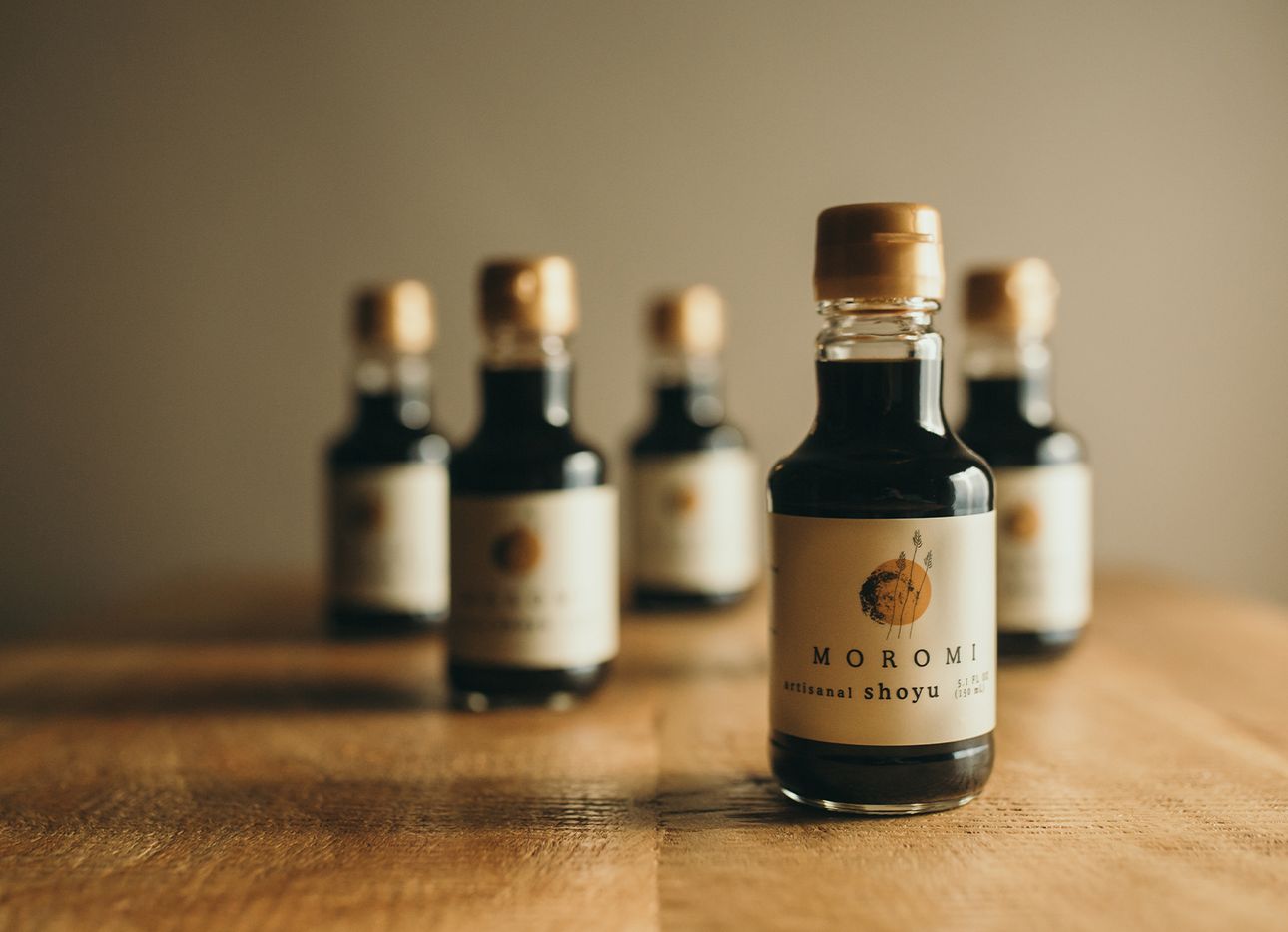
A Connecticut Condiment-Maker Combines Local Ingredients With Japanese Fermented-Food Traditions
Many of the condiments we know and love—including Tabasco sauce, crème fraîche, and Sriracha—are made using the plodding process of fermentation, in which microorganisms such as bacteria or yeast chemically break down substances to create a signature funk. Consequently, these foods’ flavors are typically more complex, and more interesting, than their vinegar-based counterparts.
Bob Florence, a chemist based in Mystic, Connecticut, became fascinated with another popular fermented substance—soy sauce—after living in Asia, and working at a San Francisco start-up focused on fermenting algae to produce renewable fuels and chemicals, and decided to try his hand at concocting a version of his own. He traveled to Japan and studied traditional production methods in Chiba prefecture, one of the largest soy sauce manufacturing regions in the country, on the outskirts of Tokyo. Last year, Florence—along with his wife, Debbi Michiko Florence, a third-generation Japanese American foodie and children’s book author, and chef-restaurateur James Wayman, an ardent supporter of hyper-local food systems—founded Moromi, a line of small-batch sauces, grains, and seasonings made by mixing local ingredients with koji, a mold commonly used to ferment sake, mirin, and many other Japanese foods.
Given its co-founders’ backgrounds, and self-proclaimed interest in playing with their food, it makes sense that the company’s output spans the traditional to the experimental. To make its shoyu (Japanese-style soy sauce), organic soybeans and Connecticut-grown hard red wheat are combined with koji spores, then aged in a brine of sea salt and water, resulting in a liquid that, once pressed and pasteurized, has an intense tang. The similarly full-bodied Cayenne Hot Sauce, made from fermented, locally grown peppers, slowly builds into an earthy, fruity savor. Most intriguing is the brand’s Chili Moromi Sauce, a clever soy-and-hot-sauce hybrid. Created after Wayman, the chef, wondered what would happen if he added chili peppers to Moromi’s shoyu ferments, the thick liquid has a satisfyingly spicy, umami-rich relish.
Moromi also produces miso, rice koji (rice that’s been treated with the fungus), and tamari, a sweet, nectar-esque byproduct of the miso. While the condiments have their roots in Japan, their uses extend far beyond dishes from the region. Try immersing mushrooms in the shoyu with a dash of lime and red peppers for a tantalizing taco topping, or mixing the liquid with a few cloves of garlic to form a marinade for chicken wings—and slather them with a glaze of honey, rice vinegar, Chili Moromi Sauce, and a pinch of salt after they’re cooked. Not sure what to do with the season’s squash? Simply slice the vegetable in half, add honey gee and a splash of shoyu to its insides, and roast to perfection.